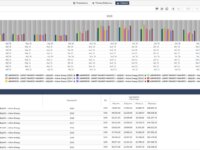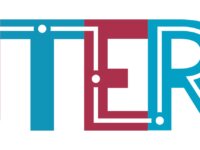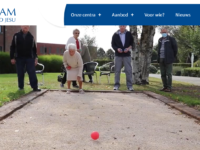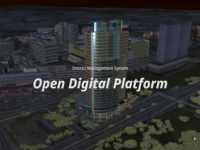With the aim to help potential victims recognize and avoid danger before falling victim to stalking crimes, the KISA and the NPA collaborated to develop a relevant technology. It is technology capable of detecting precursors of stalking crimes. It provides warning to potential victims and alert the police, aiding in the apprehension of the offender before any harm is done. By adopting this technology to over 1,200 high-risk stalking victims, Korea has successfully safeguarded from stalking crime
Innovation Tag: Internet of Things (IoT)
Case Study
Everyday Safety and Convenience through Cutting-Edge Technology: Seongdong’s Smart Shelter &…

Smart shelter
Seongdong District’s smart shelter applies smart technologies to the bus stop to provide not only real-time traffic information but also 18 useful services, including public Wi-Fi and phone charging.
Smart crosswalk
Seongdong District’s smart crosswalk uses cutting-edge technologies (in-ground traffic light, pedestrian traffic light, voice guidance, etc.) to prevent accidents caused by pedestrians using smart phones while walking and protect children and seniors.
The Korea Forest Service (KFS) identified a rising need for societal participation in recovering forests damaged by large-scale forest fires each year. A non-contact public interest campaign based on public participation was implemented utilizing a metaverse platform, recovering areas of forest fire. A single tree planted in the virtual world led to two actual new trees planted in actual forest-fire damaged areas. This is the first metaverse-based solution utilized in the field of forestry,…
Tampere Pulse is a revolutionary service that utilizes a predictive analytics algorithm to predict visitor flows in the city center of Tampere, Finland. It helps businesses make informed decision that will help them thrive, be it responding to growing demand, developing new business ideas, or adjusting required workforce and opening hours. Tampere Pulse is available to everyone through an intuitive and easy-to-use interface, on both mobile and desktop devices.
Τhe Municipality developed a centralized Internet of Things (IOT) management platform with the ability to control, record and analyze power consumption data and other resources in buildings and other infrastructures, which can function as a smart city base for the Municipality. With it, the Local Authorities will be able to obtain documented data and prepare relevant analyzes for the purpose of certifying the Municipality and submit proposals for financing projects to reduce energy consumption.
The project was born from the need to redesign the Ministry of Education's (MI) decision-making processes. The ITeR application is an organizational and management tool built to suit this purpose. The beneficiaries of the innovation are the MI actors involved in the process, but also the citizens who benefit from the measures being issued more quickly. ITeR is innovative because it enables the cooperation of all actors, keeps track of all documents and greatly simplifies the decision-making…
The Madinati platform aims to address the problem of random disposal of waste, as well as the adoption of improper practices in waste management, such as mixing waste, and its negative environmental and health effects on society. The Madinati platform helps entities to introduce accountabilities on the municipal waste generators in all sectors against the waste they produce. It helps in building a comprehensive knowledge-base with much higher accuracy to support strategical decision making.
The Fourth Industrial Revolution brings many opportunities, but also new challenges for public administration. The online training for the Fourth Industrial Revolution: New Technologies, teaches public servants and private sector employees the basics of AI, Blockchain, Virtual Reality, IoT, 3D printing, Robots, Drones and the Digital Economy. Through quizzes, games and many illustrative examples, participants can immerse themselves into the modern world of emerging technologies, which is crucial…
More than 80% of the residents in residential elderly care suffer from unwanted urine loss. This is why care staff check on them regularly, day and night. In order to minimize these disturbing and time-consuming incontinence rounds, the residential care organization Zorg-Saam set out to test new incontinence solutions equipped with sensor technologies that detect when bandages are saturated and alert care staff. With this innovation, supported by the The Programme for Innovation Procurement of…
Singapore has set its sights on becoming a world-class, tech-driven city-state, and it is doing so through the Smart Nation ambition, which seeks to harness technology to bring benefits from digital transformation in society, economy and government to how people and businesses live, work and play. The Open Digital Platform (ODP) is a key component in the digital infrastructure underpinning Singapore’s Smart Nation ambition. The ODP takes an integrated masterplan approach from the ground up,…







